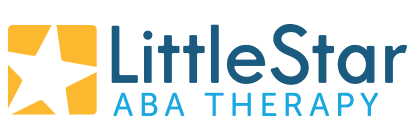Mary Rosswurm Named to Fourth Term on Indiana Commission on Autism
Mary Rosswurm, MBA, executive director of Little Star Center, has been appointed to a fourth two-year term on the Indiana Commission on Autism by Brian Bosma, Indiana Speaker of the House. The commission is directed by the Indiana General Assembly to study the service delivery system for individuals and families living with autism, examines the need for and effectiveness of available programs, and oversees and updates the development of a comprehensive plan for services for individuals of all ages with autism.
“I am really honored to have been asked to serve on the commission for another term,” said Rosswurm. “It has been great to see the positive impact that the commission has made since its inception. Hoosiers affected by autism are very lucky to have such supportive legislators working for them.”
Rosswurm serves with other commission members including: Rep. Robert Heaton, Rep. Kathy Heuer, Rep. Vanessa Summers, Rep. Michael White, Sen. Brent Waltz, Sen. Randal Head, Sen. Jean Breaux, Sen. Timothy Skinner, John Taylor, Dr. Robin Murphy, Hugh Beebe, Kylee Bassett Hope, Michael Carmin, Chris Baker, and Susan Kennell.
Rosswurm earned a MBA from Indiana Wesleyan University and a B.S. degree in Speech-Language Pathology and Audiology from Purdue University. As an active member in the autism community and as a parent of a young adult with autism, Mary was appointed by Indiana Senator and Speaker of the House Brian Bosma to serve her first two-year term on the Indiana Commission for Autism. In 2007 she was appointed to a second two-year term by State Senator Gary Dillon and completed a third term on the commission in 2011. Her research interests include fad treatments in autism and organizational behavior management. Rosswurm has been with Little Star since 2004, taking 18 months off in 2008-2009 to spend time in Massachusetts to serve as the executive director of a Department of Education-approved school for children with autism, Crossroads School for Children. While in Massachusetts, she served on an insurance mandate board advocating for coverage for applied behavior analysis (ABA) therapy.
Little Star Center is Indiana’s pioneering center in applied behavior analysis therapy and the only 100 percent not-for-profit facility offering treatment for individuals with ASD. Little Star Center was created in 2002 by parents of a child with autism who were unable to find an organization in Indiana providing this scientifically-proven treatment for children with autism spectrum disorder. More than 50 years of research document the efficacy of ABA in reducing inappropriate behavior, increasing communication, learning and appropriate social behavior. The U.S. Surgeon General and the American Academy of Pediatrics has endorsed intensive behavioral intervention for individuals with autism and other development delays.
Little Star Center offers three levels of intensive intervention geared specifically for the needs of different age groups. The Early Learner Program (ELP) serves children ages five and younger. Little Star provides assistance for children ages 5-10 years old; and Middle Star supports learners ages 10 and up.
Little Star Center received the 2011 Autism Society of Indiana’s (ASI) Excellence in Direct Care Award, the first and only autism center to win this accolade. The award is for providers who demonstrate excellence in direct care services to infant, toddlers, children, youth, and adults with ASD (Autism Spectrum Disorder) through their work in medical, educational, therapeutic, recreational or other settings using innovative and scientifically supported best practices in partnership with families and other professionals. Little Star celebrates its tenth year anniversary in September 2012.
ABOUT AUTISM: Statistics show autism has become the most rapidly growing serious developmental disability in the United States. And, autism diagnosis rates in Indiana mirror the national rate. One in 88 children will be diagnosed with autism in Indiana this year. Among boys, that number jumps to one in 54. In fact, autism affects more children annually than almost any other serious medical diagnosis. Since the average cost associated with autism over a lifetime can reach $3.2 million, the cost of early treatment should be viewed as a good investment for improving the chances of a better life — as well as financially logical. Although there is no cure for autism, getting an early diagnosis and intervening with the most effective treatment early in a child’s life gives him or her the best chance of an improved outcome. Many children with autism experience significant improvement of their symptoms with treatment and as they grow older, the combination of treatment and time can give children with autism the best chance to lead an independent life.
